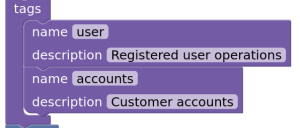I’ve heard a variety of bad advice (and some untruths!) regarding how to version your OpenAPI description lately. Rather than dig into those, instead I’ll share my opinion on how I like to version API descriptions in my own projects. Every API project is different, but perhaps there’s something here that can help your project too. Continue reading
20 Nov
2023

